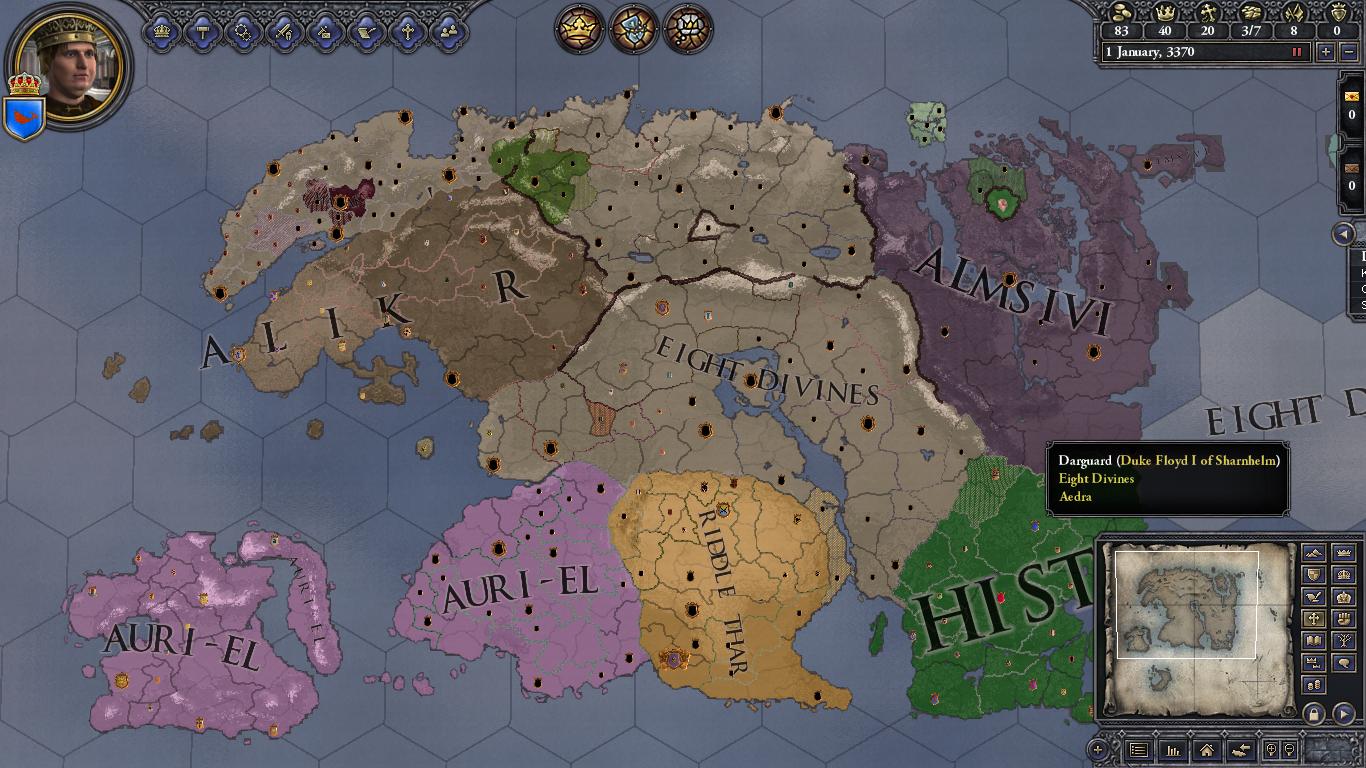

"For the first year people were like, 'Ha ha', but I kept saying it and in the third year they started coming back with actual pitches." "I used to go around at shows and say, 'We'll sign anything close to what Will Wright and Peter Molyneux did in the late Nineties'," Jorjani said. In the time since that misguidedly busy year, this more focused approach has allowed Paradox to thrive, and fill a gap in the market vacated by publishers chasing AAA glory. With strategy, Jorjani said, Paradox already has some of the world's best studios in-house with the other two categories it has been necessary to cultivate relationships with "best-in-class" third-party developers - Colossal Order's Cities: Skylines in management, for example, or Obsidian's Tyranny in role-playing games. Jorjani believes that all Paradox games fall into three broad genres: the strategy titles for which it is best known, but also management and role-playing games. So that's when we refined our core game pillars - what the game is, the Paradox secret sauce - and tried to streamline and have a portfolio that is consistent."

"If we can get somebody to pay us $40 without knowing what the game is, that's when we've succeeded. "We had this vision of people buying a Paradox game without knowing what the game was that 'Paradox' should be a guarantee for a type of game experience," Jorjani said. What, exactly, should the Paradox portfolio look like? The many stumbles that categorised that period prompted introspective discussion between Jorjani, CEO Fred Wester, and others on the management team. And we didn't have the maturity to kill them off earlier in the process." "Magicka was 2011, so in 2013, 2014 you saw all of these wonky games, where the ideas were not necessarily bad, but we as an organisation maybe hadn't matured to the point where we could execute well. "You sign a game, and it takes 12 to 24 months before it comes out," Jorjani said. "We want to make great games for our fans, and we can't do that if we don't charge something for development" This in turn led to the company taking a chance with Arrowhead's Magicka in 2011, which "became such a huge success" that a future in which Paradox published a multitude of independent games each year seemed entirely plausible. TaleWorlds Entertainment's Mount & Blade had performed well in 2008, despite it falling outside the Paradox comfort zone of grand strategy. Speaking in a closed room session with the press at PDXCon recently, VP of business development Shams Jorjani explained it as a failure built on unexpected success. Rather than being regarded as an example of its high productivity, though, the Paradox management team looks back on that period as something of a nadir - the result of drinking one too many glasses of its Kool-Aid. There was a 12-month period not so long ago when Paradox Interactive launched a dozen different games.


 0 kommentar(er)
0 kommentar(er)
